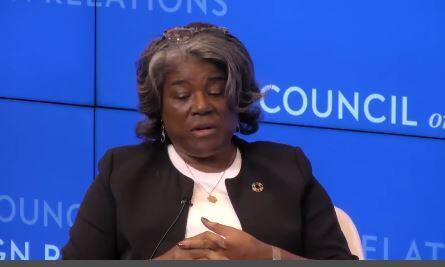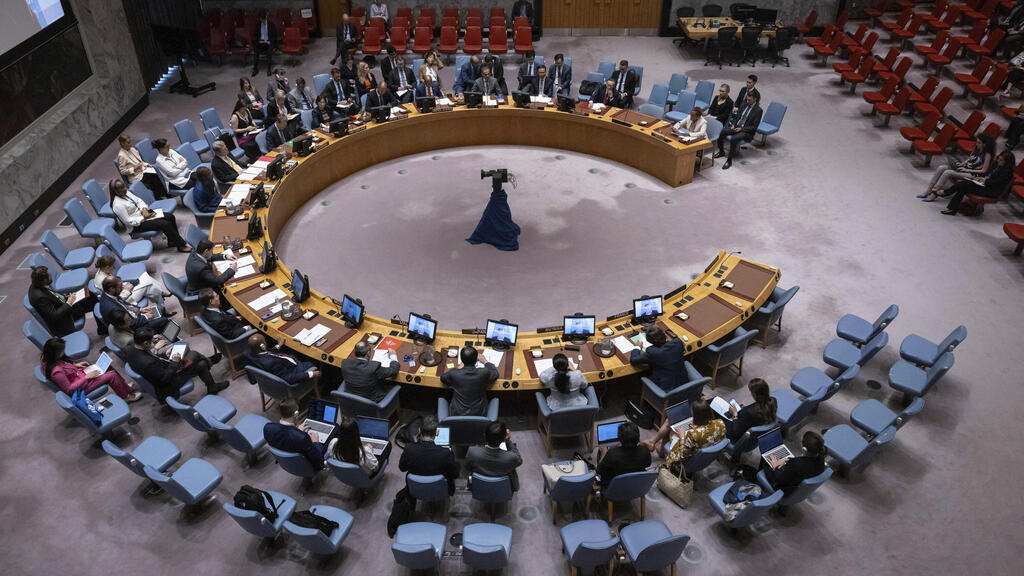US UN Ambassador Linda Thomas-Greenfield
The United States supports creating two permanent United Nations Security Council seats for African states and one seat to be rotated among small island developing states, U.S. Ambassador to the U.N. Linda Thomas-Greenfield announced on Thursday. But behind the initiative, were American interest that relate to Israel.
Officials in Greenfield's office told Ynet that the proposed reform of the Security Council was also meant to fix the anti-Israel bias in the international arena.
Since October 7, the U.S. has been criticized by many countries in Africa, over its support for Israel. Washington hopes to repair ties with Africa and strengthen them with Pacific Ocean nations, that are critical to the fight against Chinese influence in the area. Amid that, Israel's battles in the UN may also take a turn.
"There is an inarguably over-focus on Israel even before Gaza," Thomas-Greenfield said. "There's no other country in the world that has a monthly meeting on the council's agenda, going back decades."
Although the proposed reform does not include a change to the veto power of the five permanent members, it could lead to some improvement in Israel's position after years of what it describes as one-sided UN resolutions.
Greenfield and Israel UN Ambassadors have criticized the Security Council and accused it of a permanent pro-Palestinian bias. Adding new members from Africa and the Pacific may alter the balance, although that would not happen without a more substantial change.
U.N. Secretary-General Antonio Guterres backs Security Council reform he said was overdue. "You have a Security Council that corresponds exactly to the situation after the Second World War ... That has a problem of legitimacy, and that has a problem of effectiveness, and it needs to be reformed," Guterres told Reuters on Wednesday.
The 193-member U.N. General Assembly has annually discussed reform of the Security Council for more than a decade. But momentum has grown in recent years as geopolitical rivalries have deadlocked the council on several issues, particularly after permanent veto-wielding member Russia invaded Ukraine.





